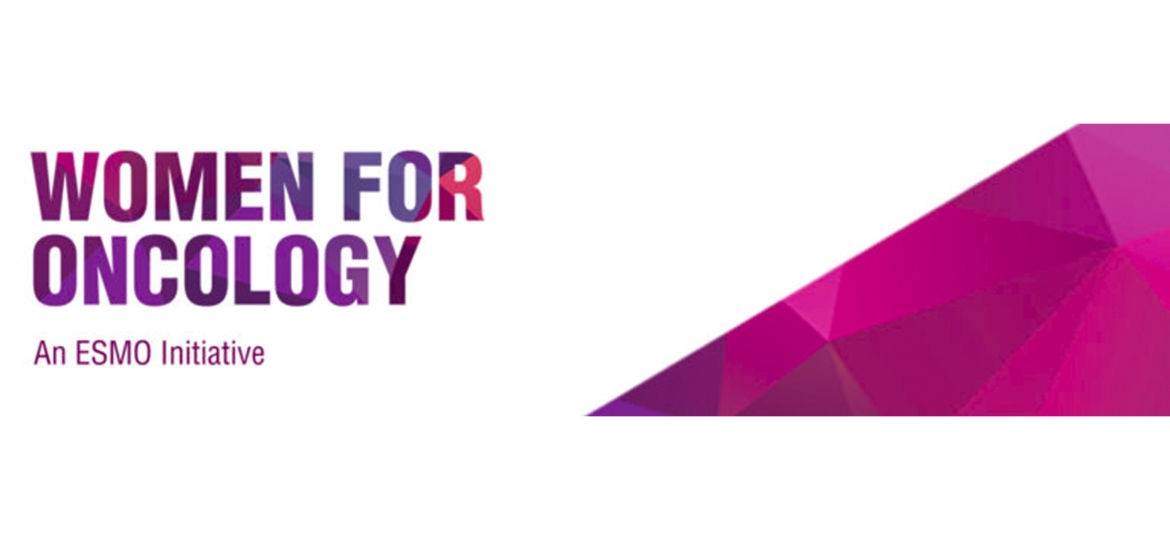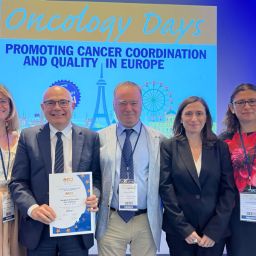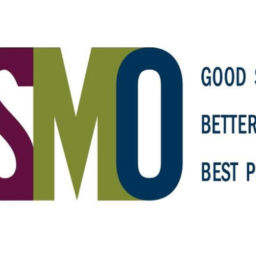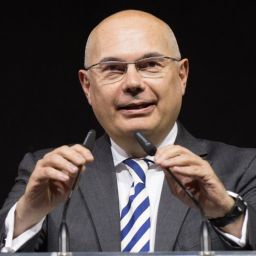
Barcelona, May 25, 2021- Results from a survey published today in the European Society for Medical Oncology’s (ESMO) open access journal, ESMO Open (1), reveal how female oncologists have been more affected than men by the COVID-19 pandemic, and how the identified, disproportionate effects may suppose long-lasting career consequences as well as further extend the existing gender gap in cancer research; especially regarding women’s access to leadership positions.
Conducted by ESMO’s Women for Oncology Committee (W4O) (2), chaired by Pilar Garrido (Madrid, Spain), who is also lead author of this present study, the online survey aimed at ESMO members sought to assess the impact of the pandemic on the lives of both female and male oncologists. Adding to the mounting evidence published in earlier reports including a study commissioned by the European Parliament’s Policy Department for Citizens’ Rights and Constitutional Affairs (3), results shed important light on how women have been more affected by the pandemic than men.
Out of the 649 respondents, 541 completed the questionnaire. Of these, 58% confirmed that COVID-19 had affected their professional career, 83% of whom said that this was in a negative way: 85% of women vs 76% of men. With regards to personal and family life approximately 86% of all survey participants affirmed that COVID-19 had changed both of these areas, with female responders significantly more affected than men: personal life 89% v s 78%; family life 84% vs 77%.
Commenting for VHIO’s Global Communications, Josep Tabernero, VHIO’s Director, Past-President of ESMO, extended member of its W40 Committee, and co-author of the study noted, “This worrisome trend extends to the detriment of cancer research. Results also reveal that a significantly higher proportion of women than men spent less time on science; 39% versus 25%. This remained the case post confinement.” He continued, “Data from this latest ESMO survey, further support the importance of promoting greater awareness about gender inequalities in career development in oncology, especially after the pandemic. Transformative policies and tailored strategies are required to reduce the impact of COVID-19, and other root causes of inequalities.”
ESMO’s W4O initiative launched back in 2015 to address the challenges faced by female oncologists aiming to undertake leadership roles during their careers, and is comprised of leaders within the oncology field including the Core Membership of VHIO’s Elena Garralda, Executive Director of VHIO’s Research Unit for Molecular Therapy of Cancer (UITM) – “la Caixa” and Principal Investigator of our Early Clinical Drug Development Group, as well as the Extended Membership of Enriqueta Felip, Principal Investigator of Thoracic Tumors & Head and Neck Cancer at VHIO; both co-authors of this present study.
To discover more, please scroll below for ESMO’s dedicated news article, and access the ESMO Open study here: https://www.annalsofoncology.org/article/S2059-7029(21)00090-9/fulltext
References:
- Pilar Garrido, Alex A. Adjei, Jyoti Bajpai, Susana Banerjee, Anna S. Berghoff, Su Pin Choo, Enriqueta Felip, Andrew J. S. Furness, Elena Garralda, John Haanen, Anne Letsch, Helena Linardou, Solange Peters, Cristiana Sessa, Josep Tabernero, Janice Tsang, James Chih-Hsin Yang, Marina Chiara Garassino. Has COVID-19 had a greater impact on female than male oncologists? Results of the ESMO Women for Oncology (W4O) Survey. ESMO Open. 2021 May 25.
- https://www.esmo.org/career-development/women-for-oncology/about-women-for-oncology
- The gendered impact of the COVID-19 crisis and post-crisis period. Policy Department for Citizens’ Rights and Constitutional Affairs Directorate-General for Internal Policies PE 658.227- September 2020.
###
Source: ESMO
COVID-19 pandemic takes a toll on women’s career in oncology
An ESMO Women for Oncology survey warns the health crisis is widening the gender gap as data shows that female oncologists have managed to dedicate less time to science during and after lockdowns
While female oncologists were already under-represented in scientific and professional societies as leaders (ESMO Open 2018;3:e000423) and in high-ranked oncology journals as first and last authors in the pre-pandemic world (BMJ 2016;352:i847) (Lancet.2018 May 5;391(10132):1754-1756), the COVID-19 crisis has further exacerbated the gender gap in cancer research. In a survey conducted by the ESMO Women for Oncology (W4O) Committee in June 2020, women reported to have spent less time on scientific activities during last year’s lockdowns compared to what reported by male participants, with a trend remaining steady after confinement (https://www.annalsofoncology.org/article/S2059-7029(21)00090-9/fulltext).
Since women have been at the forefront of the health emergency since its early times, accounting for 76% of healthcare workers in Europe, the W4O Committee launched the initiative to assess the impact of the pandemic on lives of female and male oncologists and to identify possible gender-related differences. Survey results suggest that women have paid the highest price in terms of research productivity. This is in line with other studies recently conducted reporting that women’s posting rate on preprint servers has slowed during the pandemic (Nature 581, 365-366 (2020)) and that they represent one third of all authors publishing papers on COVID-19 (BMJ Global Health 2020;5:e002922).

“We thought that the reduction of research productivity due to the pandemic would be similar between men and women working in the oncology field, but we found that major gender gaps remain,” commented ESMO W4O Chair Prof. Pilar Garrido, University Hospital Ramón y Cajal (IRYCIS), Madrid, Spain. “It has become apparent that women were expected to devote more time to family responsibilities and household work than men. Authorship, however, is necessary for career progression and represents a measure of success. This under-representation of women is likely to impact especially on those who are at early stage of their career, adversely affecting their ability to compete for more senior roles and confirming that in times of crisis women are more vulnerable,” Garrido added.
A worrisome scenario was outlined also in leadership opportunities for female oncologists. Women were less present in advisory committee or groups targeting COVID-19, their participation was generally at a hospital level rather than at regional, national or international level, and only one out of three reported taking a leadership role. “This reflects what has happened also outside the oncology field, where female leaders were under-represented in many coronavirus-related task forces at a global level. The pandemic has shown that the gender gap is still a big issue. We need gender transformative policies and commitment from people in positions of influence to drive real changes,” Garrido concluded.
























